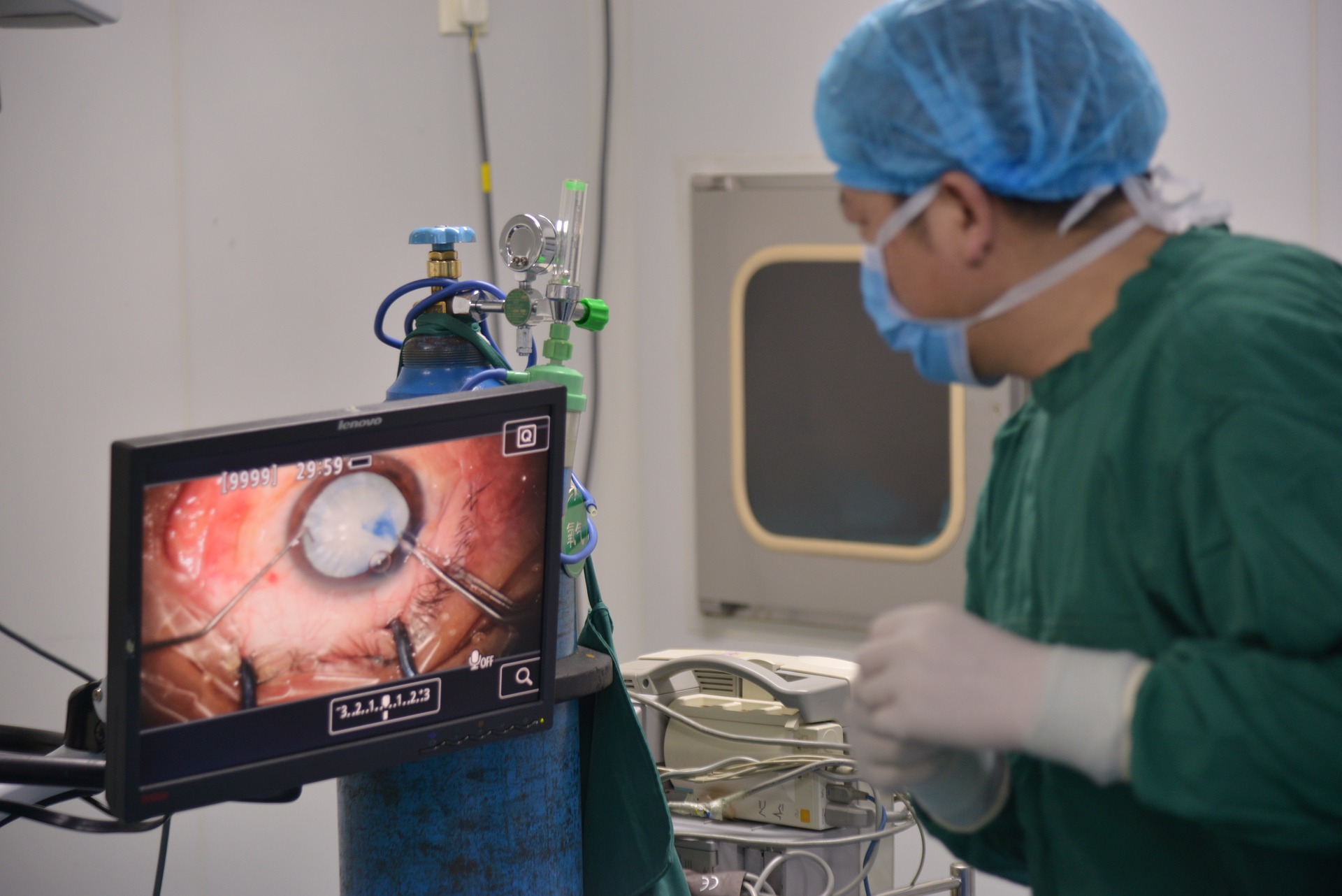
The process of cataract surgery
Cataract surgery is a quick operation made by our doctors on your eyes. In case of cataracts the lens in your eye is getting blurry, which is deflecting light or just simply not letting it through after a while. This can be sensed mostly with the worse quality of your vision especially in darker environments and low visibility conditions. Sometimes it can also be sensed by defocused vision even with glasses/lens on if you have them.
The solution for this is the changing of your lens for an Intraocular Lens (IOL), which is cataract surgery. In this process after you get anaesthetics to your eyes the Doctor will make a small incision on the side of your eyes, through which he/she can penetrate your eyes with a Phacoemulsificator. With the help of this device he can crack and suck your original lens through that small incision. Through this whole process you feel nothing of this because of the anaesthetics. After that your new IOL will be installed through that same incision in a way that it forwards light perfectly. Then you are ready with your first eye and the same processes will be repeated on your other eye.
All this takes less than 30 minutes to be done on both of your eyes, without any pain. After you finished you have to wait 1 or 2 hours on the clinic until you are taken back to your hotel, where you can rest until the day after. Next day the Doctor checks if everything is fine with your healing process and then you can leave the Clinic.
In the first few days you will have a blurry vision, but it gets better soon. The total healing process may take up to 5-6 weeks after which your vision will be just as you imagined.

